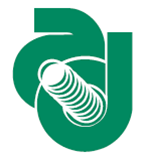Speakers
Dr
Alexander V. Zlobin
(Fermi National Accelerator Laboratory)Dr
Emanuela Barzi
(Fermi National Accelerator Laboratory)
Description
The High Field Magnet Program at Fermilab is developing advanced high-field superconducting magnets, materials and technologies for present and future particle accelerators. Since the late 90s the program has focused 10-15 T magnets based on Nb3Sn superconductor. The Program has contributed to several advances in Nb3Sn strand, cable and accelerator magnet technologies. The most important breakthroughs made at Fermilab include the development and demonstration of high-performance Nb3Sn strand and cables stable to flux jumps, reliable and reproducible production-ready short and long coil fabrication technologies, accelerator quality mechanical structures, the first world series of Nb3Sn dipole and quadrupole models with reproducible magnet parameters, innovative field quality correction techniques, etc. These advances in technology make it possible to consider 10-12 T Nb3Sn magnets for the first time in present or future accelerators, and particularly for the planned LHC luminosity upgrades. The Program is presently exploring limits of the Nb3Sn magnet technology by developing a 15 T Nb3Sn dipole demonstrator and working on magnet cost reduction. In the longer term, the program will thrust the development of accelerator magnets beyond Nb3Sn with fields of 20-25 T based on LTS (Nb3Sn) and HTS (Bi-2212 or YBCO). This talk will summarize the main results of the Nb3Sn accelerator magnet and superconductor R&D at Fermilab and discuss the Program next steps and possible applications of its results for the LHC, Muon Collider and FCC.
Collaboration
The High Field Magnet (HFM) program at Fermilab.
Summary
The High Field Magnet Program at Fermilab has been developing advanced high-field superconducting magnets, materials and technologies for present and future particle accelerators since the late 90s. This talk will summarize the main results of the Nb3Sn accelerator magnet and superconductor R&D at Fermilab and discuss the Program next steps and possible applications of its results for the LHC, Muon Collider and FCC.
Author
Dr
Alexander V. Zlobin
(Fermi National Accelerator Laboratory)
Co-author
Dr
Emanuela Barzi
(Fermi National Accelerator Laboratory)

